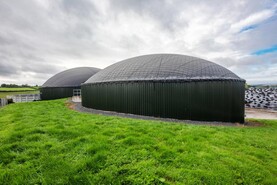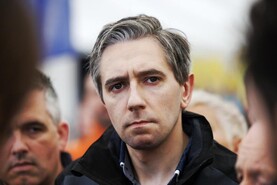The Dutch government is investigating more than 2,000 farmers after “irregularities” were discovered in the country’s registration of newborn calves.
Minister for agriculture, nature and food quality Carola Schouten announced on Thursday 8 February that irregularities in the Dutch identification and registration system were detected relating to 2,100 farms.
The agriculture ministry discovered the irregularities when it compared milk production of cows and the dates of birth of calves.
Phosphate cow cull
In early 2017, the Netherlands introduced a phosphate reduction plan which involved a large cull of dairy cows from the national herd in order to keep its nitrates exemption.
Dairy farmers were required to cut back either on milk production or herd size to a 2015 reference period.
By October, year-to-date figures showed that the Dutch cow kill stood at 460,270hd, an increase of over 16% on the same period in 2017.
We must prevent companies that do keep the rules from becoming the victims of companies that tamper with the system
Under the Dutch phosphate reduction plan, a dairy cow counts as one large livestock unit (1LU).
A heifer counts as about 0.5 LU. Once she calves down, she becomes a dairy cow of 1LU.
The Dutch agriculture ministry believes farmers have registered several calves to one cow as a multiple birth such as twins.
The real dam of the second calf remains registered as heifer (0.5LU) when, in practice, she is a fully-fledged dairy cow (1LU).
“This makes the farmer's livestock on paper smaller than in reality,” the ministry noted.
“This offers him an advantage in the context of the phosphate reduction plan: he has to dispose of less LU or animals or to pay less levy.”
Warning
“Any form of fraud is unacceptable and must be tackled hard. We must prevent companies that do keep the rules from becoming the victims of companies that tamper with the system,” warned Minister Schouten.
She added that, in addition to levies and discounts on subsidies, the Public Prosecution Service will discuss whether the farms can also be criminally prosecuted.
Animals on the farms were prevented from being moved off the farms while the investigation is under way.
Read more
No decline in Dutch milk production for 2017
Dutch cow numbers fall but production ramps up
Climate change funding needed for dairy sector
The Dutch government is investigating more than 2,000 farmers after “irregularities” were discovered in the country’s registration of newborn calves.
Minister for agriculture, nature and food quality Carola Schouten announced on Thursday 8 February that irregularities in the Dutch identification and registration system were detected relating to 2,100 farms.
The agriculture ministry discovered the irregularities when it compared milk production of cows and the dates of birth of calves.
Phosphate cow cull
In early 2017, the Netherlands introduced a phosphate reduction plan which involved a large cull of dairy cows from the national herd in order to keep its nitrates exemption.
Dairy farmers were required to cut back either on milk production or herd size to a 2015 reference period.
By October, year-to-date figures showed that the Dutch cow kill stood at 460,270hd, an increase of over 16% on the same period in 2017.
We must prevent companies that do keep the rules from becoming the victims of companies that tamper with the system
Under the Dutch phosphate reduction plan, a dairy cow counts as one large livestock unit (1LU).
A heifer counts as about 0.5 LU. Once she calves down, she becomes a dairy cow of 1LU.
The Dutch agriculture ministry believes farmers have registered several calves to one cow as a multiple birth such as twins.
The real dam of the second calf remains registered as heifer (0.5LU) when, in practice, she is a fully-fledged dairy cow (1LU).
“This makes the farmer's livestock on paper smaller than in reality,” the ministry noted.
“This offers him an advantage in the context of the phosphate reduction plan: he has to dispose of less LU or animals or to pay less levy.”
Warning
“Any form of fraud is unacceptable and must be tackled hard. We must prevent companies that do keep the rules from becoming the victims of companies that tamper with the system,” warned Minister Schouten.
She added that, in addition to levies and discounts on subsidies, the Public Prosecution Service will discuss whether the farms can also be criminally prosecuted.
Animals on the farms were prevented from being moved off the farms while the investigation is under way.
Read more
No decline in Dutch milk production for 2017
Dutch cow numbers fall but production ramps up
Climate change funding needed for dairy sector






 This is a subscriber-only article
This is a subscriber-only article









SHARING OPTIONS: